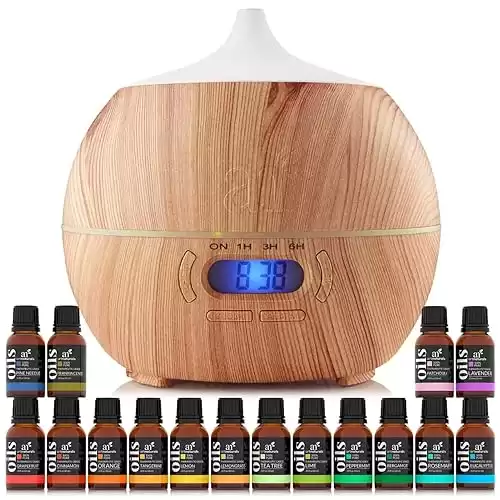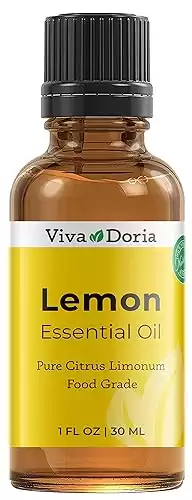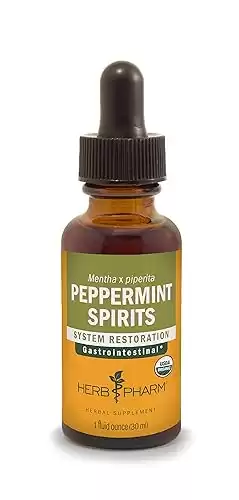10 Essential Oils For Allergies That Will Not Disappoint

People have been using essential oils derived from nature to make their lives easy and relaxed. In addition, essential oils are one popular way to fight stress. Still, most are only turning to get aromatherapy products so that they can find relief from a stuffy nose, puffy eyes, headaches, asthma, and all other signs of linked seasonal allergies. This article will teach you about the best essential oils for allergies and what brands are best for you to try.
Essential oils are a natural and safe sign relief tool, but they will not stop you from having seasonal allergies.
Diffusing aromas is a very effective method for dealing with allergies. However, you may dilute the carrier oils and apply them topically under the nose, chest, down the front of your neck, and behind the ear.
Adding essential oils for allergies to your saline solution in the neti pot may also help.
Table of Contents
How do essential oils fight off allergies?
People have moved towards essential oils for many years to heal so many health woes: allergies. But how do essential oils for allergies work? The essential oils can bypass your digestive system, which means they may enter your bloodstream quickly to be used. The liver metabolizes these oils, so they are not digested the way food is.
Most essential oils are made from such plants with potent antiviral, antimicrobial, or anti-fungal properties. The plants mostly have anti-inflammatory components too. In addition, the body can use properties from oils to support the healing process of the respiratory and immune systems.
Of course, if your signs are severe, it is always worth getting a check-in at your doctor’s office. But if you are only looking for some relief, we have a list of 10 essential oils for allergies.
***A lot of essential oils are not made for ingesting, so make sure that you get food grade if you are planning on ingesting the oil.***
This product includes the following essential oils and a beautiful wooden diffuser:
- Tea Tree
- Peppermint
- Lavender
- Rosemary
- Eucalyptus
- Lemongrass
1. Eucalyptus

It is known to have anti-inflammatory, cooling properties. This eucalyptus oil comes from Australian native eucalyptus trees.
This oil can be used as a treatment for signs of spring allergy by adding some drops to a bowl having hot water, and enjoying its steam. However, you should be warned that eucalyptus oil can also cause eye burns, so, ideally, you cover your eyes if you sense stinging.
Eucalyptus can be added to bathwater, add just a few drops with some Epsom salt to help you relax and breathe better.
2. Frankincense
Derived from Boswellia trees present in India, the Middle East, and Africa, this essential oil has been studied for its ability to support your respiratory system and also encourages slower and deeper rhythmic breathing.
To use, you should put some drops into your diffuser or create a steam of it to sniff. You may also put some drops onto your hands and inhale to get its benefits.
3. Oregano
Oregano oil is derived from the same items sprinkled onto your pizza. It supports your immune system, and it is known to be antibacterial, antiviral, and anti-inflammatory – all things happen to be helpful when combating spring allergy signs.
You can add some drops of oregano oil in a hot bath with Epsom salt as well.
4. Clove
Harvested from clove trees, clove oil is cultivated from Indonesia to Brazil and Asia. You may enjoy ground cloves in your daily food to address some allergy signs and warm digestion, or you may diffuse it in the air using a diffuser. You may also inhale the sweeter scent of it directly.
5. Lemon

You can build up your ideal immune system. Lemon oil is the best to support the respiratory and health of the immune system. It has mood-boosting and anti-inflammatory properties. However, you may enjoy lemon juice by squeezing it into the water when you feel a bit sniffling.
You may also diffuse the scent using a diffuser into the air.
Lemon essential oil has antimicrobial properties and antioxidant properties, but you must only ingest essential oils that are safe for ingesting. (Hsouna et. al., 2017)
- Creates a cheery, uplifting atmosphere
- Comes in a glass amber bottle
- Tightens skin and removes excess oils
- Country of Origin: USA Southwest High-quality Food Grade Lemon oil
6. Cinnamon
While some sprinkle of cinnamon might liven up your breakfast oatmeal, it may be a potent allergy fighter too. In a study in 2019, participants used a nasal spray infused with cinnamon bark, which helped decrease the seasonal allergy signs.
You may savor some of the cinnamon added to your foods, or you may also try diffusing some in the air using a diffuser. Other than these methods of using it, you can apply it onto your skin directly using a carrier oil or inhale it.
I like to combine cinnamon with vanilla and orange essential oils to have a very naturally sweet aroma.
7. Rosemary
Just like all other ingredients, you may have Rosemary in your kitchen too. It can also relieve signs of spring allergy. In addition, Rosemary helps in increasing blood flow and also boosts the immune system. It comes with its antibacterial abilities as well. It may be inhaled using a vial, diffused, or is applied to your pulse points along with a carrier oil.
8. Tea tree
Harvested from its evergreen leaves of the Australian Melaleuca alternifolia tree, the tea tree oil has been praised for its collection of benefits. It helps in clearing acne to act as your natural deodorant. It is both antimicrobial and also anti-inflammatory properties. For allergies, it may be applied to your skin using a carrier oil or can be used in the bath. Always keep in mind that tea tree oil is very toxic to your pets, either inhaled or ingested.
9. Revensara
Distilled from the leaves harvested in Ravensara, Madagascar, only a little-known essential oil may help temper different allergy symptoms.
With the scent reminiscent of Rosemary, Ravensara may be bought as an essential oil through online sources and may be taken through inhalation or sprayed in your nose. It may also be diffused in the air.
10. Peppermint
That pungent, strong scent of peppermint, right? There is a reason that it feels as if your different sinuses clear out every time you smell a bottle of this oil. Peppermint oil also supports your respiratory system. To reap this benefit, diffuse it so that you can breathe it in or apply it on your skin with the carrier oil for sure.
You can use these best essential oils for allergies by putting them into a diffuser, rollerball, or neti pot. These things will help boost the usage of these essential oils and allow you to attain their benefits quickly. In addition, they will give you immediate relief in and you would love to keep them by your side at all times. These oils for allergies will soothe your issues, and you will find instant relief in your sinuses instantly.
- Food Grade- Safe For Ingesting
- Improves Digestion
- Calms Upset Stomach
- Organic & Non-Gmo, Gluten-Free
- Absorbed faster, bypasses the digestive system
Reference Links:
Ben Hsouna, A., Ben Halima, N., Smaoui, S., & Hamdi, N. (2017). Citrus lemon essential oil: chemical composition, antioxidant and antimicrobial activities with its preservative effect against Listeria monocytogenes inoculated in minced beef meat. Lipids in health and disease, 16(1), 146. https://doi.org/10.1186/s12944-017-0487-5
https://www.sciencedirect.com/topics/medicine-and-dentistry/bergamot-oil
https://www.medicalnewstoday.com/articles/324570
https://parade.com/1186274/shelby-deering/essential-oils-for-allergies/
https://wagwalking.com/condition/essential-oils-for-allergies
https://www.takingcharge.csh.umn.edu/are-essential-oils-safe
Originally posted 2022-01-10 17:09:17.
Megan Santiago
Latest posts by Megan Santiago (see all)
- How to Find a Trauma Therapist in Tampa - September 30, 2024
- Get Your Child to Listen: A Clear-Cut Way To Feel Heard - March 10, 2024
- Help With Bills – How to Get Financial Assistance - March 10, 2024



